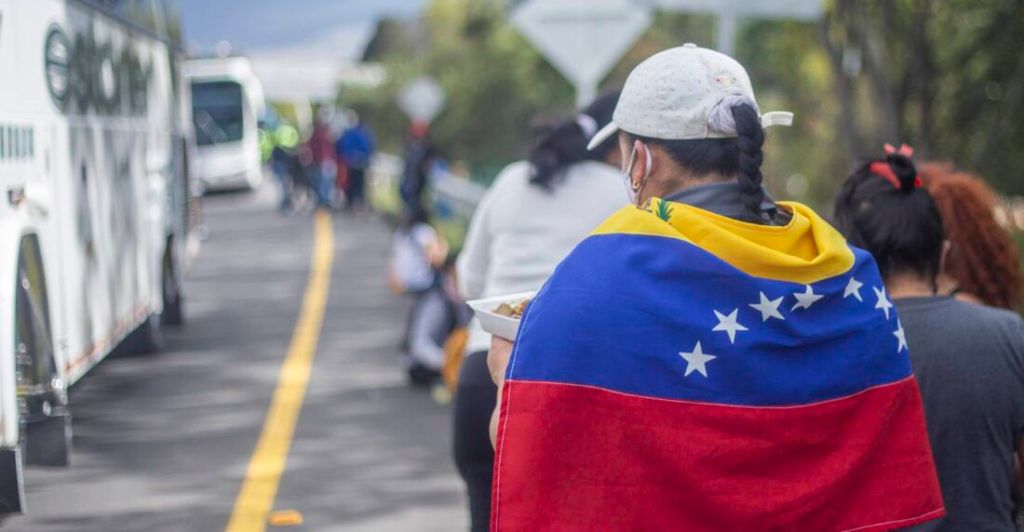Denounces migratory pressure in the region due to the Venezuelan crisis

The Andean countries have so far received 60% of the wave Venezuelan migration in recent years, and they fear that the political and economic crisis currently taking place in the country will increase flows that the countries in the region are not in a position to assume, according to the former president of the Andean Parliament, Cristina Reyes.
The congresswoman, who will leave the Andean Parliament next October to prepare her candidacy for the Ecuadorian presidential elections for the Amigo movement, regretted during her visit to Madrid that the Venezuelan opposition leader Edmundo González has been forced to leave his country and seek asylum in Spain.
“I hope that Nicolás Maduro will be held accountable before the courts for electoral fraud and the repression of the opposition,” he told EFE.
“Maduro is dedicated to adopting absurd measures, such as bringing forward Christmas, in order to avoid paying attention to the real problems of Venezuelans,” he said, “and that forces people to emigrate.”
Venezuelan migration, which by June 2024 amounted to 7.7 million people, according to the Interagency Coordination Platform for Refugees and Migrants from Venezuela (R4V), whose website is managed by UNHCR and the International Organization for Migration, “will continue to increase and neighboring countries “are not in a position to face the social problems that this entails.”
Reyes, who is in Spain this week participating in an inter-university meeting, highlighted the “courage” with which Venezuelan opposition leader María Corina Machado is “fighting for democracy” in her country.
“Machado is a clear example of the female leaders who are making a strong entrance into Latin America,” said the congresswoman, who also mentioned former Ecuadorian President Rosalía Arteaga among her role models.
The deputy took advantage of her visit to Madrid to close her time in the Andean Parliament, highlighting the progress achieved within the framework of Eurolat, the assembly formed by European and Latin American parliamentarians that “has worked in depth on the issue of crime.”
In his opinion, the fight against drug trafficking “cannot be tackled only by drug-producing countries, but also by recipient countries, and Europe has a fundamental role in this.”
The Ecuadorian political representative expressed her concern about the situation in her country, which in recent years has seen an increase in criminal activity and organized crime related to drug trafficking.
She herself was affected when the Attorney General of Ecuador revealed the relations of her advisor Mayra Salazar with the drug lord Leandro Norero.
Reyes, who considers herself the victim of a smear campaign, said that the fight against drug trafficking is one of the priorities of the government program of the Amigo movement, which at the convention held on August 15 elected Juan Iván Cueva as its presidential candidate and Cristina Reyes as its vice-president.
“The energy crisis that Ecuador is suffering and the deficiencies in education and health” are other central themes of this political tandem that wants to break “with the useless debates between supporters of Correa and anti-Correa supporters” and seek a space outside the hegemonic parties..
Independent journalism needs the support of its readers to continue and ensure that uncomfortable news that they don’t want you to read remains within your reach. Today, with your support, we will continue working hard for censorship-free journalism!
